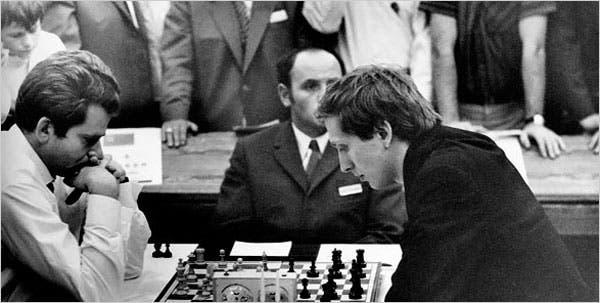Welcome to a story of intellect, intrigue, and international cold war drama. It’s the tale of Bobby Fischer’s legendary victory in the 1972 World Chess Championship. This victory not only etched his name into history as the first American to clinch the title since its inception in 1866 but also broke a 24-year streak of Soviet domination in the realm of chess. Let’s dive into the extraordinary journey that led to this unparalleled feat.
From humble beginnings in Brooklyn, New York, Bobby Fischer was not your ordinary child prodigy. By 14, Fischer had already won the U.S. Open Championship, a title he would repeatedly dominate. By 15, he was the youngest international grandmaster the world had ever seen. This young chess genius quickly became a pop culture icon, the subject of books, movies, and even songs. His bold and confident public persona, along with his vehement criticisms of the Soviet chess system, made his matches more than just a game; they were a statement against the political backdrop of the Cold War era.
The journey to this monumental victory was anything but straightforward. The lead-up to the match was fraught with drama, beginning with Fischer’s initial demands for increased prize money and control over TV and film rights. His characteristic late arrival in Reykjavik, fueled by a last-minute prize purse doubling and an encouraging nudge from none other than Henry Kissinger, set the stage for what would become the most publicized chess match in history. Fischer’s passion for chess and determination to challenge Soviet dominance in the sport were evident, despite the controversies that seemed to follow him wherever he went.

- Bobby Fischer triumphantly claiming the World Chess Championship title, marking a pivotal moment in chess history. Source: Pauler Communications, Inc. – townplanner.com
The match itself was a rollercoaster of emotions and strategies, starting with Fischer’s forfeit of the second game—a move that shocked the world. However, his comeback was nothing short of miraculous, claiming victory after victory against the formidable Boris Spassky. The final score of 12.5 to 8.5 in Fischer’s favor after Spassky’s resignation via telephone was a testament to Fischer’s unparalleled skill and tenacity. With a prize of $156,250, Fischer’s victory was not just a personal triumph but a symbolic victory for the Free World against the Soviet chess juggernaut. Yet, this victory also highlighted Fischer’s complicated relationship with the competitive chess world, culminating in his forfeiture of the world title in 1975 due to unmet demands.
Bobby Fischer’s path to victory in the 1972 World Chess Championship remains one of the most compelling stories in sports history. His win was not just about chess; it was a narrative interwoven with themes of genius, rebellion, and the geopolitical tensions of the Cold War. Fischer’s triumph brought chess into the global spotlight, inspired countless Americans and chess enthusiasts worldwide, and challenged the political and cultural status quo of his time. As we look back on this iconic moment, it serves as a vivid reminder of the power of determination, the spirit of competition, and the profound impact that one individual can have on the world stage.
To our local neighborhood residents and beyond, Fischer’s story is more than just a historical anecdote; it’s a source of inspiration and testament to the fact that anyone can challenge the status quo and leave an indelible mark on history with enough passion and perseverance. Whether you’re a chess aficionado, a history buff, or just someone searching for a compelling tale of triumph against the odds, Bobby Fischer’s path to victory in 1972 is a journey worth exploring.
